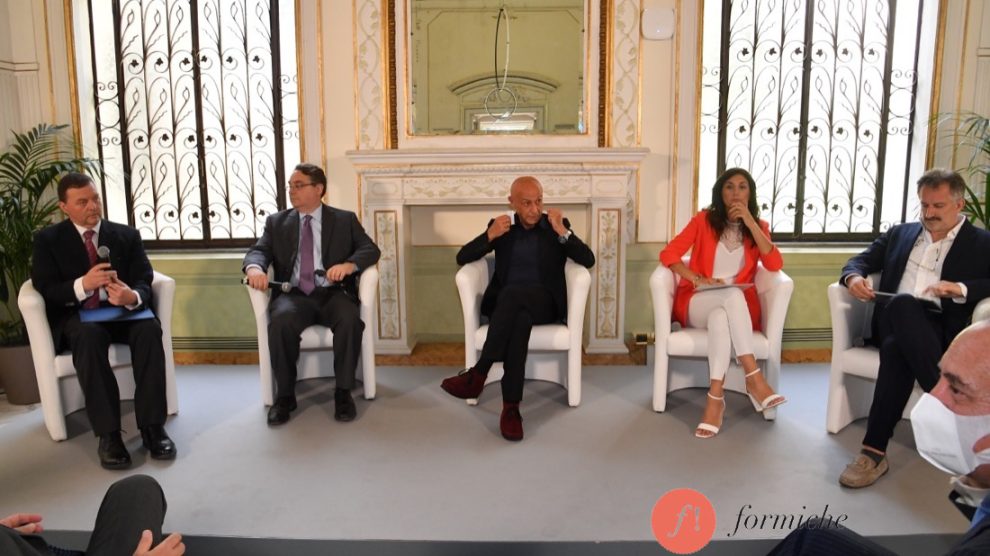Converging challenges. The MENA area is bearing the brunt of global shifts, as it’s more exposed than most other countries to the effects of the war in Ukraine, the pandemic, the grinding economic recovery, the great powers clash, the climate crisis, the energy transition, the stressed supply chains.
- To explore these issues, the Atlantic Council and the Med-Or Foundation co-organised an eloquently-titled panel, “The Middle East in the New Geopolitical Disorder”, which was live-streamed on Tuesday afternoon from Rome.
The AC’s foreword. William Wechsler, Director of the AC’s Rafik Hariri Center and all Middle East programmes of the Washingtonian think tank, noted that the perception of an American retreat from the MENA area left a void that several actors rushed to fill. “Russia is back in the Middle East again, along with a new player: China,” he added.
Who will fill the void? These are times of great change, noted the panellists, and the wider Mediterranean is one of the most contested geopolitical theatres. Not least because of the perceived withdrawal of the United States from the MENA area, following 50 years of shifting foreign policies, noted Mr Wechsler.
- Voids do not exist in foreign policy, as they are immediately filled, stresses Riccardo Redaelli, professor at the Università Cattolica del Sacro Cuore in Milan.
- “China is coming to the Mediterranean the ‘Chinese way’: prudent, avoiding conflict, forging economic ties” to fill those voids.
- Hence, given the region’s centrality, the US “should convince itself that being in the Med is crucial.” This issue matters for the cooperation and alliance between the US and Europe.
Stepping up the EU game. In the last decade, the EU maintained a stance of grave passivity and inattention towards the Med. “We have pretended it did not exist,” stresses Mr Redaelli. He was echoed by Karim Mezran, Director of the Atlantic Council’s North Africa programme and debate moderator, who highlighted the need for new European involvement.
- The rediscovered centrality of the Med goes along with its geopolitical and geo-economic weight, as 1% of the world’s water is home to 15% of all maritime trade.
- This centrality requires a long-term vision, especially because the issues on the EU’s southern front have demonstrated its limitations as a geopolitical actor.
- The EU’s approach is far from ideal. “Partnerships in which we promise money to autocrats so that they pretend to conform to our values do not work,” remarked Professor Redaelli. “EU member states compete, and half of them do not care about what is happening in the Med.”
Back to the Atlantic. A new European project for the MENA area is in order, argued the panellists. And back they went to the subject of EU-US cooperation.
- “Russia’s objectives in the Mediterranean have always been clear. Even after the war, it will remain a key player in the area […] This is an opportunity for [Western] cooperation,” he added.
- “There is an opportunity for the US to influence the situation in the Middle East. I think we are going in that direction. Obviously, President Joe Biden should go to Riyadh in the next few months,” said Mr Wechsler.
- He was referring to the US President’s rumoured visit to Saudi Arabia to meet with the new ruler, Mohammed bin Salman, at a time of fraught relations between the two allies.
Energy talks. Mr Wechsler remarked that the EU’s race to diversify away from Russian hydrocarbons highlighted the Med’s centrality to the US, as alternative suppliers are scattered around the MENA area. But that power game risks upending international and internal balances.
- “Take the eastern Med, for instance: it hosts enormous energy resources. However, several experts believe it could be the eye of the perfect storm, having generated many of the tensions that have hindered joint security and energy efforts,” explained Alessia Melcangi, Associate Professor at the Sapienza University in Rome and Non-Resident Senior Fellow for Middle East Programs at the Atlantic Council.
- The US’ renewed interest in the frozen EastMed pipeline project has rekindled the hope that Med countries can tap those immense reserves to substitute Russian gas. Ms Melcangi noted the project’s importance.
“If the eye doesn’t see, the heart doesn’t grieve.” That’s a rough translation of the Italian expression chosen by Marco Minniti, President of the Med-Or Foundation, to describe Europe’s long-adopted stance on global turbulence. And the results are clearer by the day, he stressed.
- “If we look closely at what is happening in Ukraine, we can see that many of its underlying causes are related to the wider Mediterranean area,” he said, noting how all of this could directly impact European stability.
- “The looming Mediterranean food crisis can become a social crisis, which can generate political tensions, which can cause humanitarian crises, which can be exerted by cynical actors to exert pressure.”




